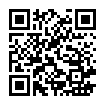Миграционные настроения москвичей и белгородцев с нетрадиционными религиозными взглядами
Научная статья
Аннотация
Литература
2. Campbell, C. The Cult, the Cultic Milieu and Secularization // The Cultic Milieu / Ed. by J. S. Kaplan, H. Lööw. Lanham : Rowman & Littlefield, 2002. Pp. 12–25. ISBN 978-0-7591-1658-0. DOI 10.5771/9780759116580.
3. Wilson, B. An Analysis of Sect Development // American Sociological Review. 1959. Vol. 24, № 1. Pр. 3–15. DOI 10.2307/2089577.
4. Балагушкин, Е. Г. Нетрадиционные религии в современной России: морфологический анализ. Москва : ИФ РАН, 1999. 221 с. ISBN 5-201-02012-7. EDN SUPUMJ.
5. Мартинович, В. А. Нетрадиционная религиозность: возникновение и миграция: Материалы к изучению нетрадиционной религиозности. Т. 1. Минск : Минская духовная академия, 2015. 560 с. ISBN 978-985-7028-11-5.
6. Barker, E. The Making of a Moonie: Choice or Brainwashing? Oxford : Blackwell, 1984. 305 р. ISBN 978-0631132462.
7. Beckford, J. A. Cult Controversies: The Societal Response to New Religious Movements. London : Tavistock, 1985. 335 p. ISBN 0-422-79630-1.
8. Levitt, P. God Needs No Passport: Immigrants and the Changing American Religious Landscape. New York : New Press, 2007. 270 р. ISBN 1595581693.
9. Кублицкая, Е. А. Социокультурные и семейные ценности россиян с нетрадиционными религиозными взглядами (на примере Москвы и Белгородской области) / Е. А. Кублицкая, И. В. Лютенко // Научный результат. Социология и управление. 2024. Т. 10, № 4. С. 5–30. DOI 10.18413/2408-9338-2024-10-4-0-1. EDN ROOPFD.
10. Лютенко, И. В. Социокультурные представления коренной и приезжей молодежи с нетрадиционной религиозностью (социологический опрос студенчества) // Научный результат. Социология и управление. 2024. Т. 10, № 1. С. 40–53. DOI 10.18413/2408-9338-2024-10-1-0-4. EDN ADYBAR.
11. Лютенко, И. В. Социокультурные представления тувинской молодежи с нетрадиционной религиозностью (социологический опыт) // Наука. Культура. Общество. 2023. Т. 29, № 2. С. 103–116. DOI 10.19181/nko.2023.29.2.9. EDN GWXIIS.
12. Малиновский, И. А. Практики New Age у постсоветской городской молодежи как культурная форма техник заботы о себе // Вестник РГГУ. Серия: Литературоведение. Языкознание. Культурология. 2023. № 6. С. 138–157. DOI 10.28995/2686-7249-2023-6-138-157. EDN CNBUAG.
13. Кублицкая, Е. А. Традиционная и нетрадиционная религиозность: опыт социологического изучения // Социологические исследования. 1990. № 5. С. 95–103. EDN BGWJUG.
14. Morrison, P. S. Internal Migration and Employment: Macro Flows and Micro Motives / P. S. Morrison, W. A. V. Clark // Environment and Planning A: Economy and Space. 2011. Vol. 43. № 8. Pp. 1948–1964. DOI 10.1068/a43531.

Поступила: 02.07.2025
Опубликована: 30.09.2025





